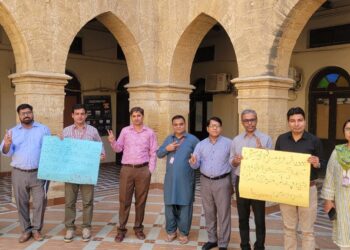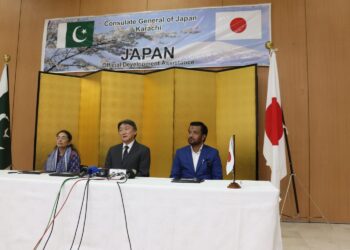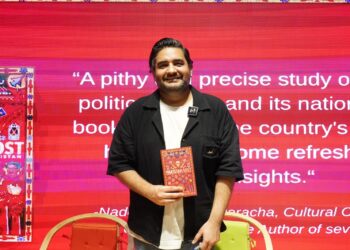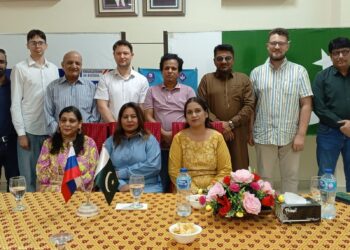The conference featured poster and oral
presentations evaluated for originality
and impact, awards for outstanding research
Staff Reporter
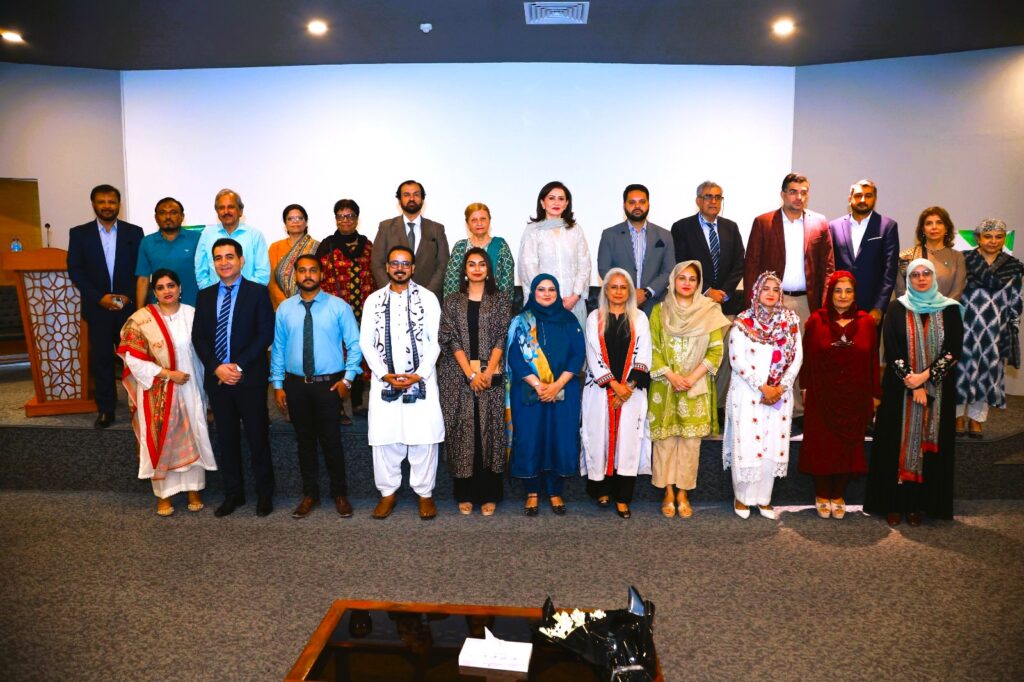
Karachi: The College of Education, Ziauddin University organized its annual conference on humanities, education, and social sciences titled “Decolonizing Curriculum: Reimagining Education for Equity and Ubuntu”. The event brought together educators, scholars, policymakers, and thought leaders to discuss dismantling colonial pedagogical practices and shaping a locally relevant, inclusive, and equitable education system in Pakistan.
The conference aimed to promote self-reliance in education by replacing outdated, colonial-era content with curricula that meet the genuine needs of Pakistani learners at school, college, and tertiary levels. Speakers emphasized empowering teachers to guide young minds with a strong sense of identity, free from colonial influences.
Keynote Address – Prof. Dr. Fareed Panjwani
Prof. Dr. Fareed Panjwani, Dean of the Institute for Educational Development at Aga Khan University, highlighted the importance of decolonizing both the mindset and the curriculum.
“Education must unite rather than divide, nurture empathy, critical thinking, and creativity, and go beyond material gain to embrace happiness, mastery, and the search for truth,” he said.
Dr. Panjwani also cautioned against the economic structures and “techno-feudalism” that continue to perpetuate modern forms of colonialism.
Balanced Global and Local Standards
Dr. Muhammad Zohaib Tariq, CEO of Learning Resource Network (LRN), stressed that decolonizing education is not about rejecting the global but creating a balance between global recognition and local cultural relevance.
Gaps in Pakistan’s Education System
Senior journalist Mazhar Abbas noted that Pakistan’s education system suffers from inequality between government and private school curricula and a lack of focus on primary education. He emphasized that education is a right, not a privilege, and warned against the decline of critical thinking due to disinformation.
Learning from History to Transform the Future
Mr. Kareem Aman, Director of Academic Affairs at CDF-Pakistan, emphasized the need for multidisciplinary learning, combining literature, philosophy, psychology, and history to shape independent thinkers.
Representation, Justice, and Inclusive Learning
Dr. Shahla Najib Sidiki, Dean of the Faculty of Liberal Arts and Human Sciences at Ziauddin University, said the conference was about “power, representation, and justice,” advocating for learning spaces where diverse voices are recognized as vital to intellectual growth.
Collective Commitment to Decolonizing Education
Rana Hussain, Principal of the College of Education and former caretaker Minister for Education, Sindh, called for cross-institutional collaboration to free Pakistan’s education from colonial legacies and create a curriculum that reflects local needs with a global vision.
Research Presentations and Panel Discussions
The conference featured poster and oral presentations evaluated for originality, relevance, and impact, with awards for outstanding research. A panel discussion included distinguished academics, education professionals, policymakers, and administrators, moderated by Rana Hussain.

